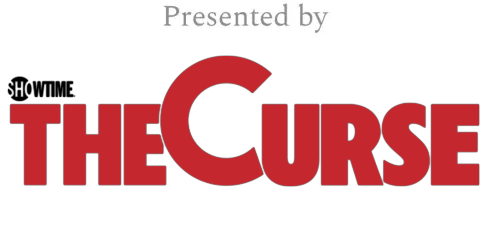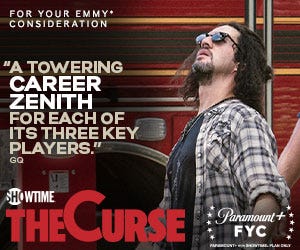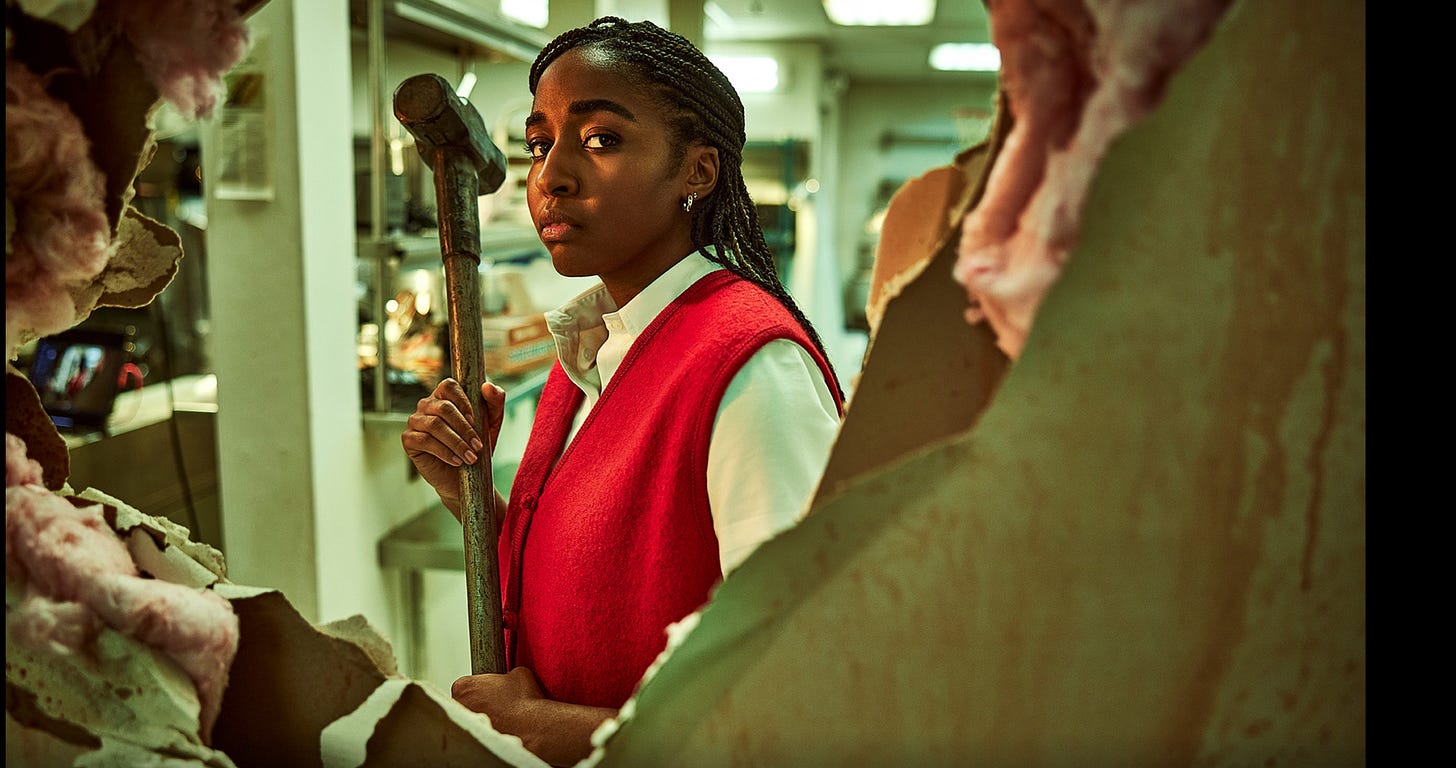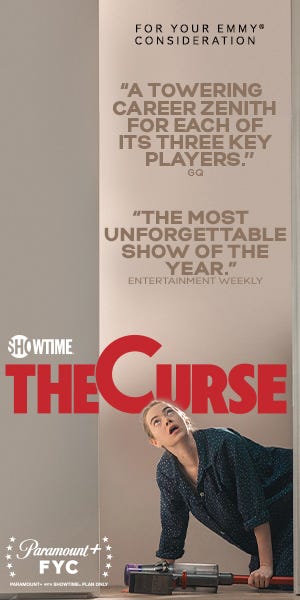Bradley Cooper's Cameo to Jamie Lee Curtis at Christmas
Today I parse actor matchups across Emmy submissions and speak with Prentice Penny about 'Black Twitter'
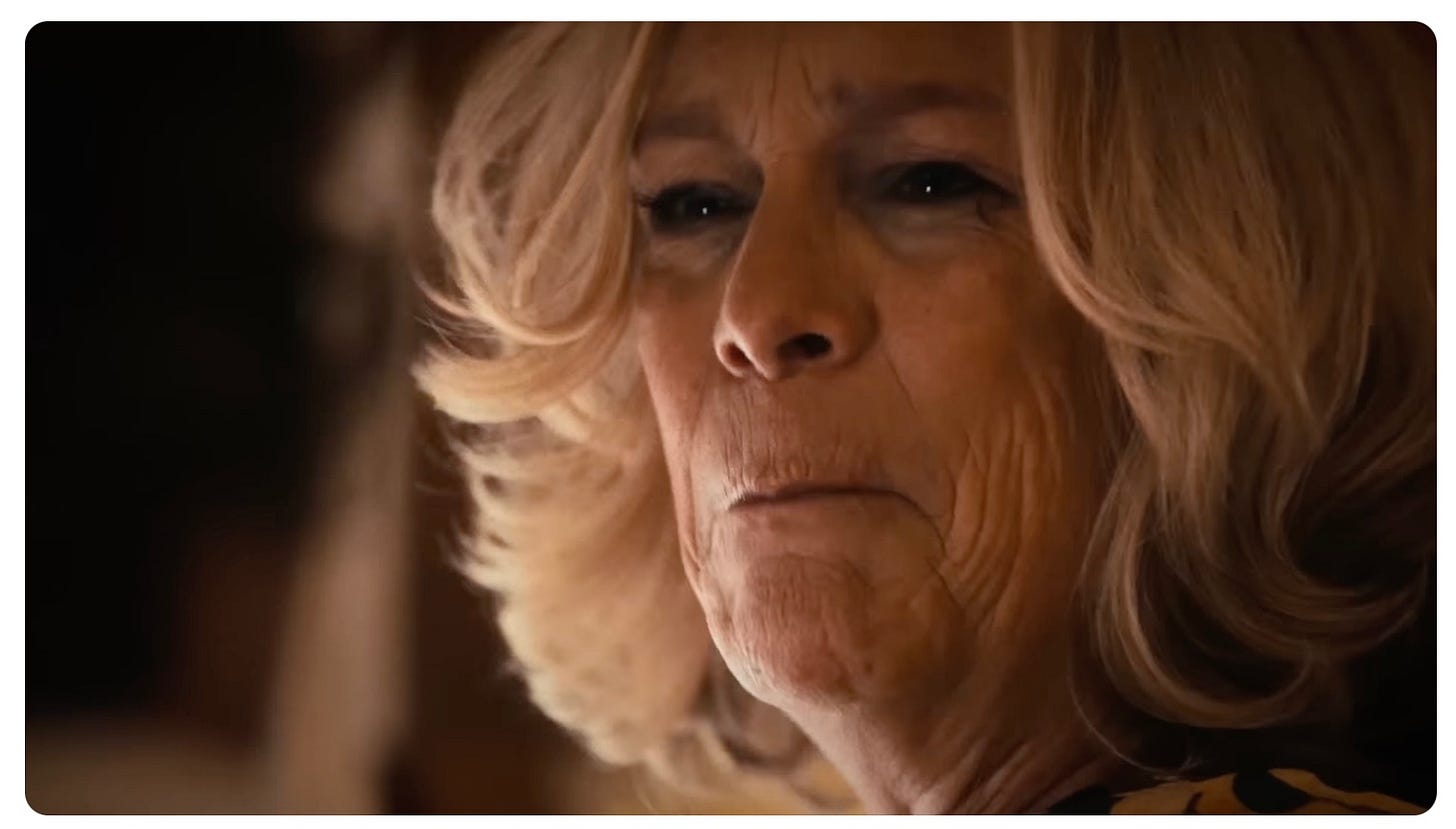
In the weeks leading up to Emmy nomination voting, the life of an Emmy voter is all about being courted: FYC ads on your drive to work, screenings followed by Q&A (perhaps hosted by me and The Ankler!) and maybe a cocktail reception, mailers to grab every remaining shred of your attention. Heck, even the placemats at Jon & Vinny’s had a Disney ad last week!
But now that the ballots are out, the actual work begins. Emmy nominations are determined by peer groups, meaning if you’re an editor, you’re only voting in the editing categories plus the program categories (outstanding drama, outstanding comedy, etc). That’s still a lot of television to weigh in on, and with the list of all eligible contenders available to the public, it’s possible for the rest of us to dig through and see just what the voters are dealing with.
Today I’ve got the first part of my deep dive on the acting categories, which are of course fairly glamorous — look at all the Oscar winners in the mix here! — and also easy to understand for anyone who has no idea how to vote on sound editing for a nonfiction reality program. (Though I’d love to know more about how that works — email me, sound editors! katey@theankler.com.)
Ahead, I’ve picked a category, a contender, a trend — and a wild bit of sketch comedy that all have me fascinated — and what they might tell us about the Emmy race ahead. Stick around for my conversation with Prentice Penny, who’s Emmy eligible this year for directing and narrating the three-part Hulu documentary A People’s History of Black Twitter.
Ayo Edebiri’s Quadruple Threat
While she’s been scooping up awards for her performance as Sydney on The Bear, Ayo Edebiri has also become one of the industry’s most reliable voice actors, popping up everywhere from the Netflix sci-fi animated series Mulligan to this weekend’s hit Inside Out 2 (she plays Envy). At this year’s Emmys she is, of course, eligible as best actress in a comedy, where she’ll go head to head with back-to-back winner Jean Smart for the first time now that Hacks has returned from its hiatus..
But she’s likely to join several of her fellow nominees with multiple nominations, either for her voice roles on Mulligan or Clone High or for her stint hosting Saturday Night Live. As you learn when you pore over these ballots, there are some actors who are just absolutely everywhere right now — Jon Hamm is eligible in three different categories and Kieran Culkin is up for three different voice roles, to name just two examples. But few are as busy and as white-hot famous as Edebiri right now.
The John Oliver Sketch With the Wildest Nomination Potential
The category for outstanding character voice-over performance can be all over the place — the casts of The Simpsons and Family Guy have won many times, naturally, while Julie Andrews remains a nominee but never a winner for voicing Lady Whistledown on Bridgerton. (Maybe next year, Julie!)
Although Last Week Tonight with John Oliver tends to dominate in its own regular categories, I’m not sure how much of a force it can be here, where it has submitted five different actors for voicing grocery store produce from a sketch about Medicaid benefits. Behold for yourself in the video above; the sketch starts at around 24 minutes.
I’m pulling for you, Fred Armisen, Nick Kroll, Mark McKinney, Eugene Mirman and Cecily Strong. Even though this category isn’t announced during the primetime Emmys, I’ll still be imagining a presenter saying the phrase “Eugene Mirman as Butternut Squash.”
Jamie Lee Curtis Mows Down the Competition
I don’t feel too strongly about the ongoing debate about how comedic The Bear is, even though awards reps from more outwardly comedic contenders are often steaming about it. But it is amusing to take a look at the guest actress in a comedy field, which Jamie Lee Curtis is expected to dominate for her not-remotely-funny appearance as Carmy’s volatile mom, Donna.
Sure there are a few other contenders whose brief performances skew more dramatic, like The Bear’s own Olivia Colman — also a shoo-in for a nomination if you ask me — or Kaniehtiio Horn’s violent spirit Deer Lady on Reservation Dogs. But I just don’t know how you weigh Curtis’s nerve-jangling work against something like Jackie Hoffman’s double-dip eligibility for both Only Murders in the Building and Night Court.
One more fun fact about the guest actress in a comedy category: There are six Oscar winners in the mix, including Curtis, Colman, Saturday Night Live host Emma Stone, Only Murders star Da’vine Joy Randolph and Hacks’s Helen Hunt.
‘And Introducing Bradley Cooper as Himself’
Famous actors playing heightened versions of themselves is nothing new — Curb Your Enthusiasm made an art of it for more than two decades and is back at it for its Emmy-eligible final season. But it’s got a lot of company this year in the guest actor in a comedy series category, ranging from fellow show business parodies — Matthew Broderick and Mel Brooks as themselves on Only Murders in the Building, Richard Kind’s brilliant appearance in the Girls5Eva finale — and the superhero series Gen V, which somehow features Jason Ritter as himself.
These nominations often end up being some of the most hilariously short in the field. For every Benjamin Bratt, who engaged in a full-fledged romance with Maya Rudolph on a single episode of Loot, there’s a Bradley Cooper flying into Abbott Elementary for two minutes.
But sometimes a few minutes is all you need — just ask Don Cheadle, who seemed genuinely surprised to be nominated for a brief cameo in Falcon and the Winter Soldier.
Prentice Penny on Making History
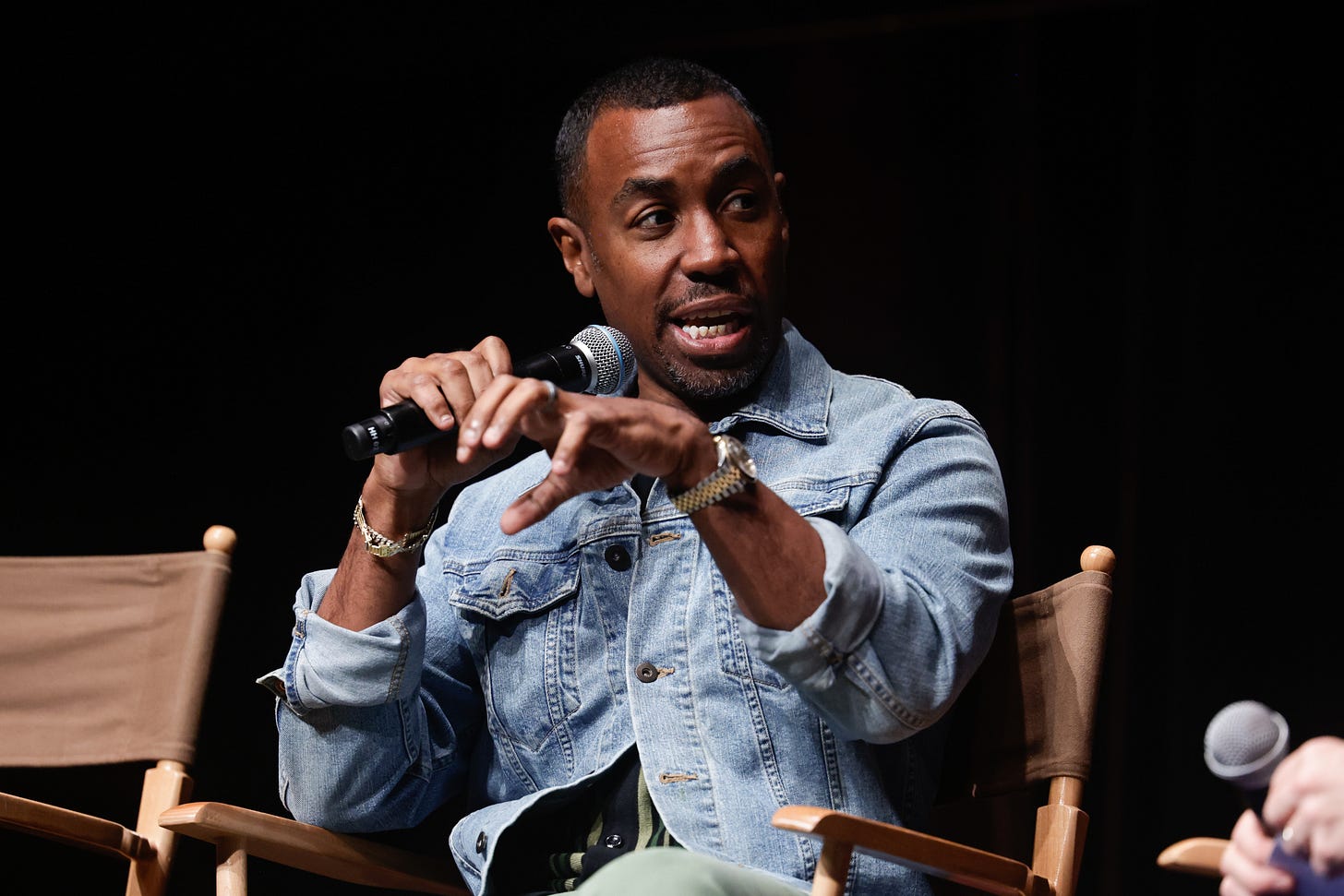
Prentice Penny was a firsthand witness to the power of Black Twitter. As the showrunner of Insecure, he watched the weekly adventures of Issa Rae and Yvonne Orji’s characters turned into meme after meme, building the show’s devoted audience in real time.
Penny was already an experienced writer, having worked on such shows as Girlfriends and Happy Endings, but the Peabody-winning Insecure was a new level entirely, and he knew he needed to choose his next act carefully. That’s when Jason Parham’s Wired series “A People’s History of Black Twitter” came to Penny, with the opportunity to turn it into a documentary series.
The resulting three-part Hulu docuseries is an entertaining and insightful look back through the last 15 years of internet culture created and shaped by Black people on Twitter (now X) from Crying Jordan memes to #OscarsSoWhite. Given X’s constantly tenuous state under Elon Musk’s ownership, the documentary is an essential historical document — something Penny says was absolutely the point.
I caught up with Penny on the Atlanta set of an undisclosed new project to ask him about why it was so hard to pick his Insecure follow-up, the inspiration he took from Spike Lee and what he’s learned over time about his own social media habits.
Katey Rich: You’ve said you got to the end of Insecure and were trying to figure out what you wanted to do next. What made that hard?
Prentice Penny: What made it hard was — and I don't think I've ever said this — but I spent six years really giving everything I had creatively to making that show be the best version of that show. And so I'm sure some of it was feeling creatively spent. The best way I could describe it is feeling like you won a championship and you won the Super Bowl. I thought I'd hit a mountaintop.
I realized I didn't want to just rush and just have some idea I could concoct quickly if it wasn't anything that meant something to me to do. Whatever I did, regardless if it had a bunch of professional impact, it needed to have more personal impact besides just hustling to the next gig.
KR: The team behind this documentary approached you to make it. Did you have a lot of people approaching you in that period?
PP: People were coming to me to be like, can you either write this or help show run with this person? And I was like, I just did all that stuff. I don't want to do that for somebody else. This was so different. Initially I said no, and it's ironic — I wanted to be scared, and I got scared.
But once I got past that, I started thinking about it again. Spike Lee is one of my favorite filmmakers, and I thought about the way he does narrative and unscripted. I started to ask myself, okay, but if you were going to do a doc, how would you do this? Once I started asking myself those questions, I kind of freed myself from the fear.
KR: So much of the history of Hollywood is early silent films that disappeared, or even TV shows from the 90s you can’t find anymore. It seemed like with this doc you guys were really confident that these Twitter phenomena deserved to be properly documented and preserved.
PP: So many things are impermanent. We even think about things like Friendster and MySpace and Vine. All those things are gone, but they had their day in the sun, and who knows how long these things will stay around because they're so new?
[This is] more so in Black culture, where so much of our culture in this country is oral tradition. We don't necessarily even know what language you spoke or who your great great grandparents were. You can't go to Ellis Island and see your great-great grandparents’ signature in a book. That didn't exist for Black culture. We weren't taught to read and write, and so much of our stuff isn't written down.
As we were making the doc, we were like, man, Elon could turn off Twitter. Then everything about Black Twitter would be another oral tradition. And that's just kind of wild to think about.
KR: The documentary does such a great job of capturing the way that Black Twitter fueled TV hits like Scandal and Insecure, even though the people inside Twitter didn’t realize it. When you were running Insecure, did you get the sense that Hollywood underestimated Black Twitter too?
PP: HBO is a specific place and definitely realized how important the show was and what the conversations were. The multicultural marketing team like Lucinda [Martinez] and Jackie [Gagne] and that whole team over there were just so smart about the conversation that was happening around our show. They were so great that I remember when we were launching season two, they threw a block party for us. Issa and I were like, we should make a block party in season four. I've never seen that before— the creative team taking the marketing idea. I think that's what also happens when you have people who are marketing your show who look like you too. All those things matter.
KR: What’s your relationship like with social media these days?
PP: I'm definitely trying to limit it. One, I'm just trying to be more present. Then I see my kids on it, and so I'm always mindful of like, Hey guys, let's get off our phones. There was never a time when I was not checking Twitter or Instagram at least a couple of times a day. Now I could go a couple of days, two or three days, four days and not really check it or be on it.
KR: That’s really impressive.
PP: Unless there's a news thing happening, [then] I'm like, okay, well, what is Twitter saying?
KR: Did Trump's conviction get you back on Twitter? It definitely did for me.
PP: Definitely. And with the Kendrick-Drake stuff happening, I'll be like, oh, what's going on there? I'm trying to pick more of those moments than I'm just randomly on the phone. But even then, I have to be careful. Because then I start reading people, and I start getting mad and I’ve got to say something. I'm like, I don't have to say anything.



